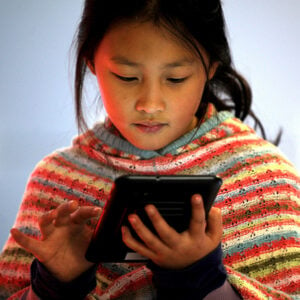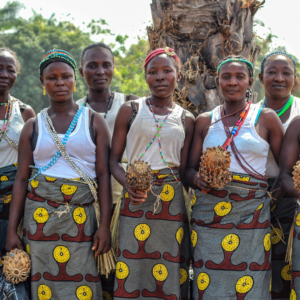In recent weeks, the Taliban cut off Internet and phone networks across Afghanistan, silencing millions of women and girls and severing their last link to the outside world. For those with connectivity, the blackout disrupted access to education, work, and vital services, highlighting how fragile these digital lifelines are in a country where many women still lack phones, Internet access, or the literacy to use digital tools. Although connectivity has largely been restored, the shutdown sent a stark message: women and girls’ access to learning, expression, and essential services can be blocked at any moment.
Afghan women already face severe restrictions, being banned from secondary and higher education, most forms of work, and public spaces such as parks, gyms, and sports clubs. Many rely on humanitarian aid, especially those in earthquake-affected eastern Afghanistan and women returning from Iran and Pakistan. The Internet blackout intensified stress, isolation, and anxiety, depriving women and girls of their ability to access aid, learn about disasters, seek services for gender-based violence, continue online education, maintain livelihoods, connect socially, and remain visible in public life. For many, online spaces were one of the last avenues for agency and resistance.
The blackout coincided with humanitarian crises, including a 6.0 earthquake in eastern Afghanistan. Women-led organizations, critical in delivering life-saving aid and supporting returnees, were forced to halt operations as NGOs could not process payments, place orders, or provide emergency cash assistance. Survivors of gender-based violence faced increased risks as household tensions rose, illustrating how digital access directly impacts safety and wellbeing during emergencies.
For many women entrepreneurs, the Internet has been a rare means to work and generate income. Women selling handmade goods or running online businesses lost their only source of income overnight when connectivity was cut, highlighting that digital access is not a luxury but a lifeline. Business owners like Sama from Parwan relied on online shops to earn money, achieve self-sufficiency, and sustain their families, showing how essential digital spaces are for economic empowerment.
The blackout underscored that the digital world can either empower or exclude. Afghan women’s experiences demonstrate what is at stake when connectivity is restricted: education, mental health, livelihoods, and hope. When women are silenced online, their opportunities and connections to the outside world are further curtailed. UN Women has continued to support Afghan women and girls through programs like Rebuilding the Women’s Movement, partnering with 140 women-led organizations across 24 provinces and supporting hundreds of women staff with salaries and training, fostering resilience despite the severe restrictions on public life.







